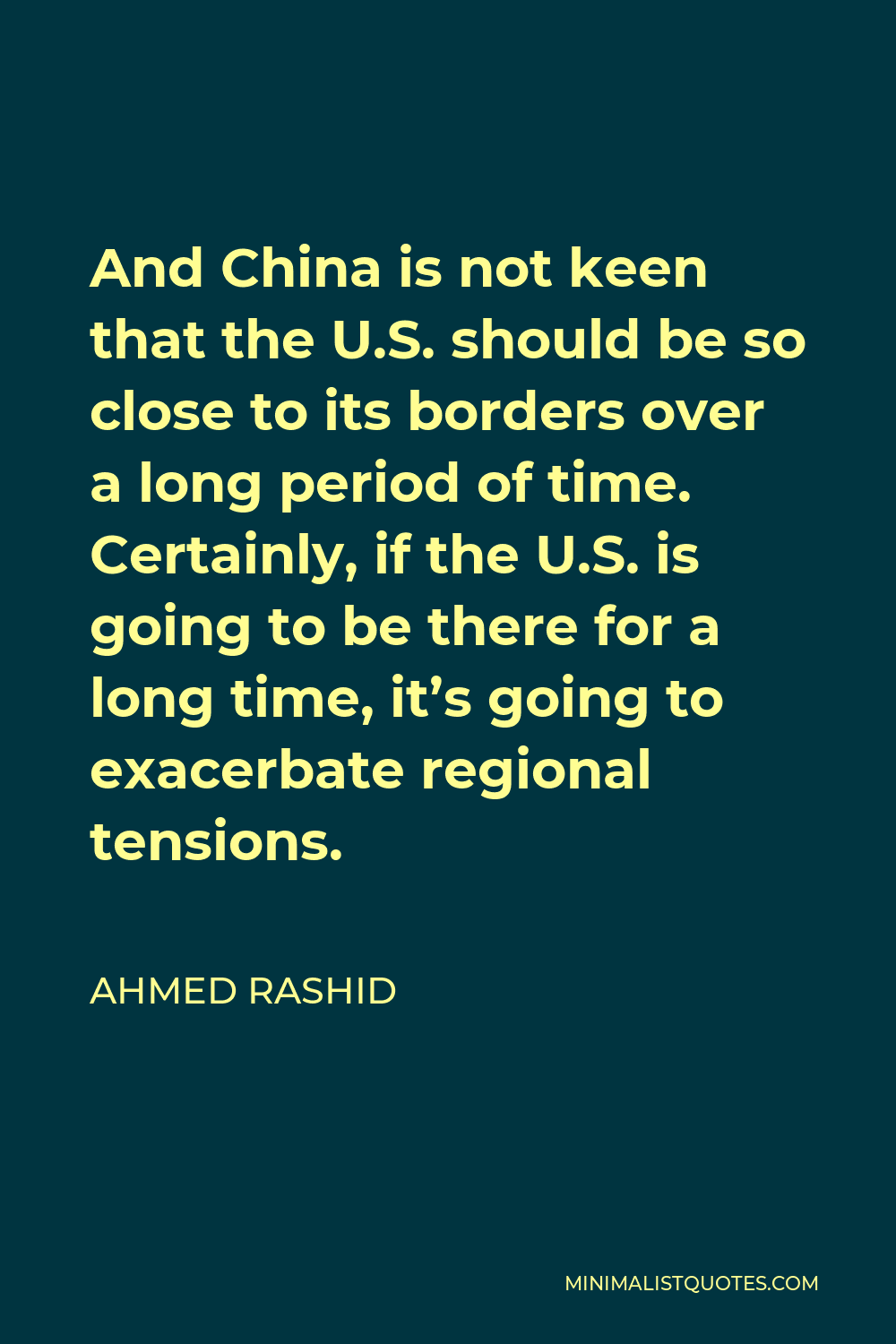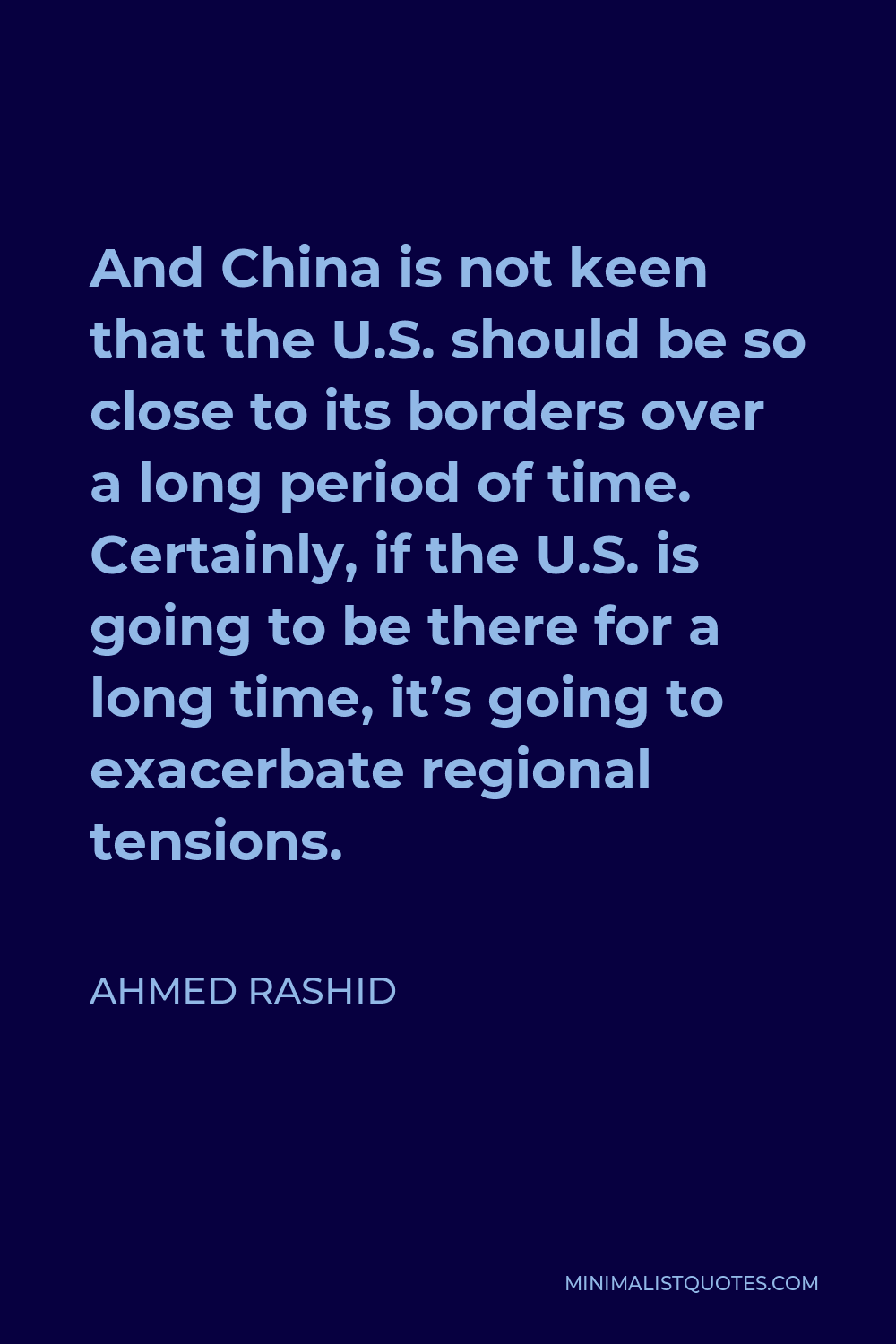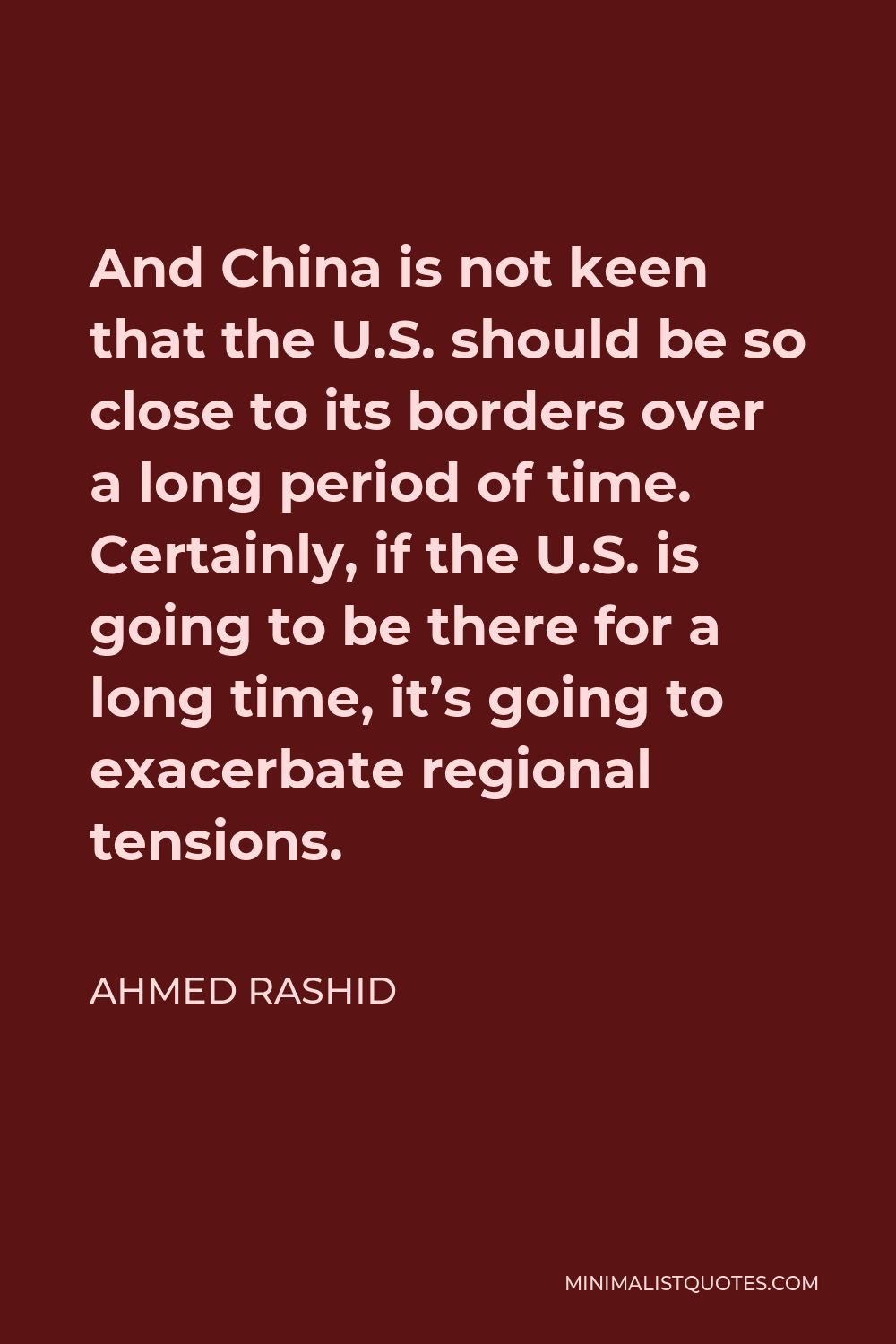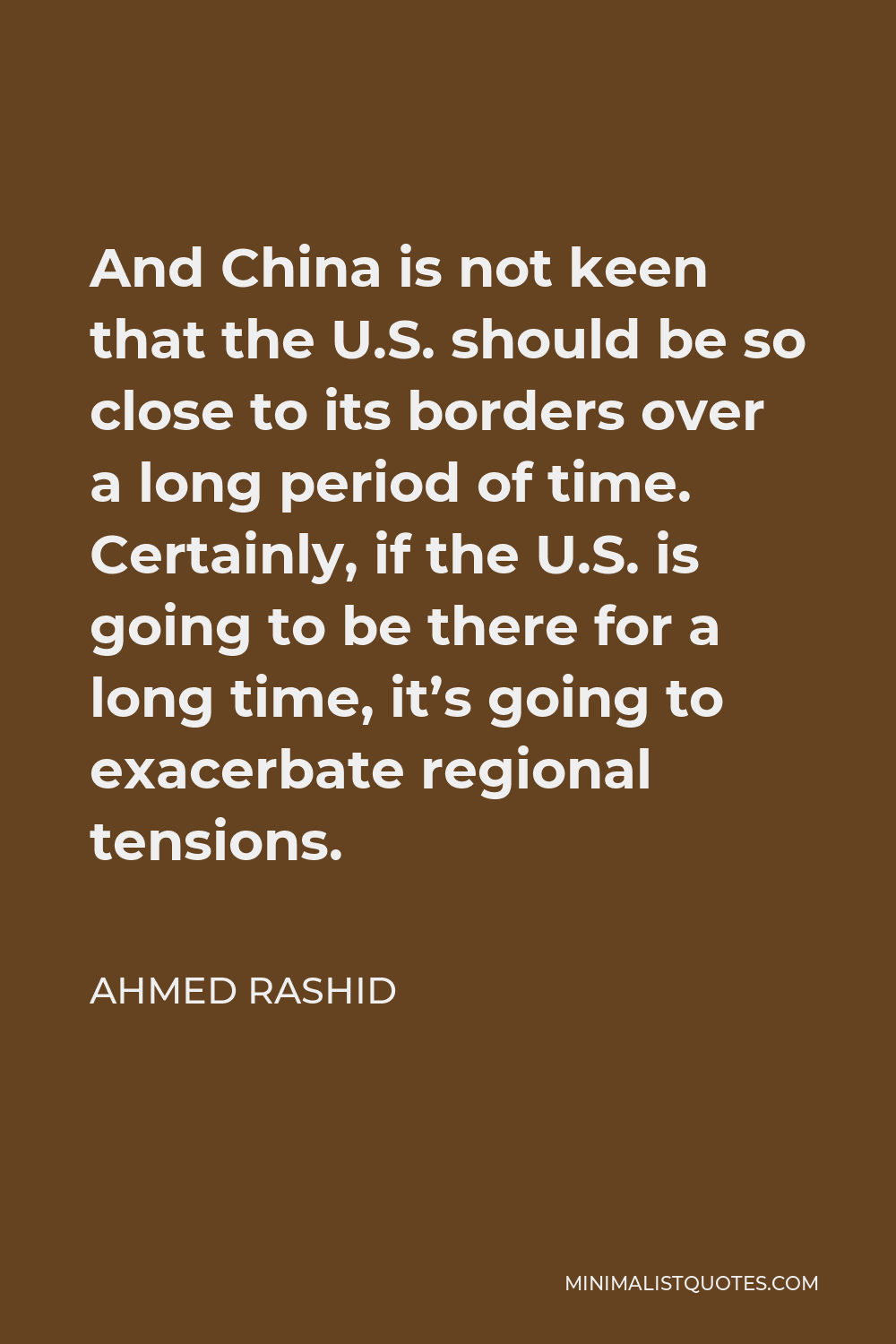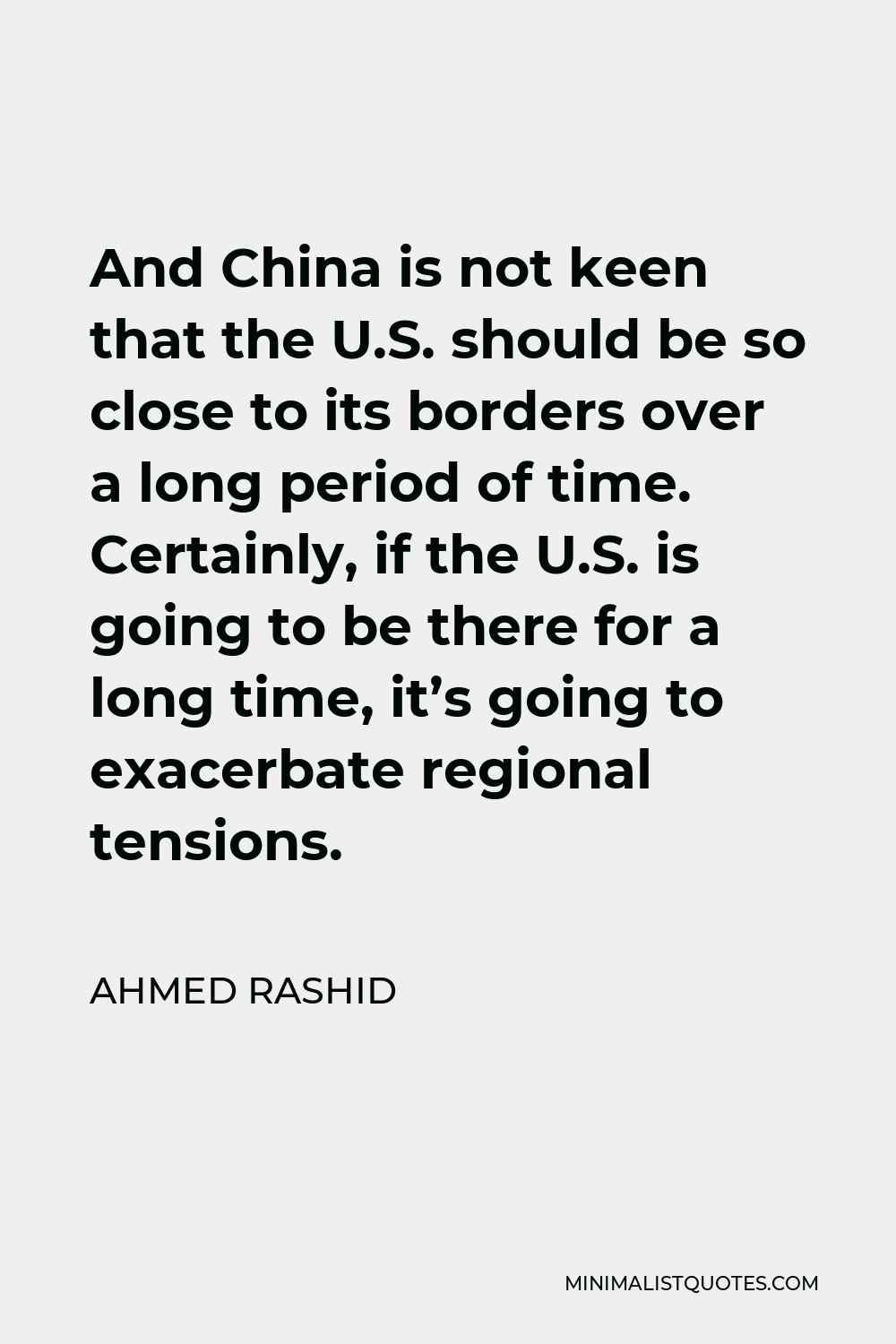The Pashtuns are angry at the Americans because, one, they’re still being bombed, and two, they perceive that the Americans are backing the Tajik faction, which controls the army and security forces in Kabul.
AHMED RASHIDAnd China is not keen that the U.S. should be so close to its borders over a long period of time. Certainly, if the U.S. is going to be there for a long time, it’s going to exacerbate regional tensions.
More Ahmed Rashid Quotes
-





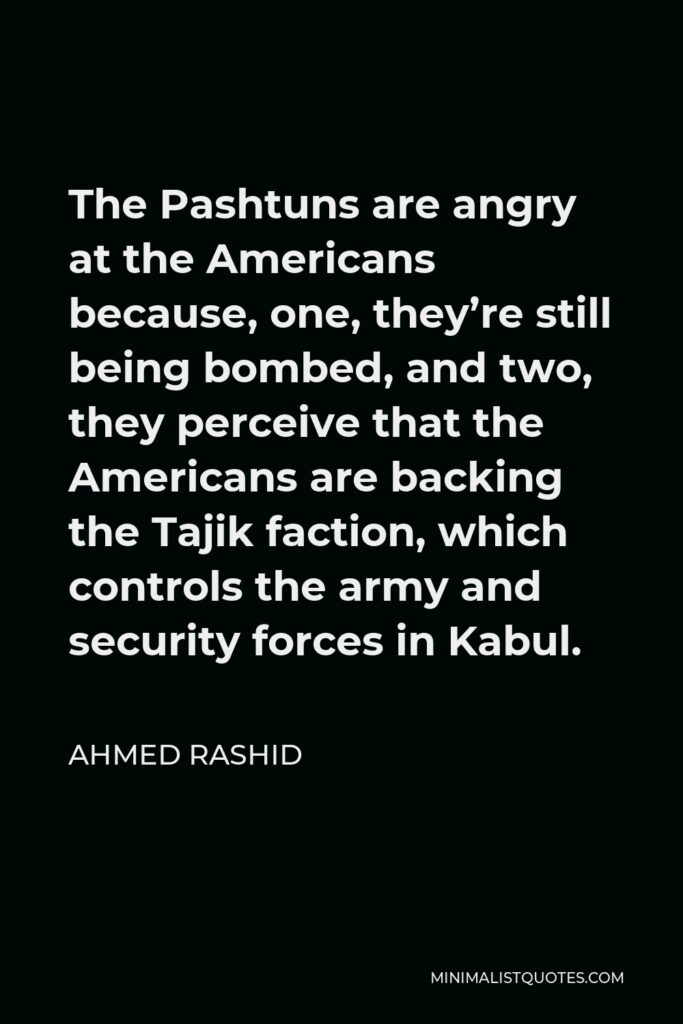

-





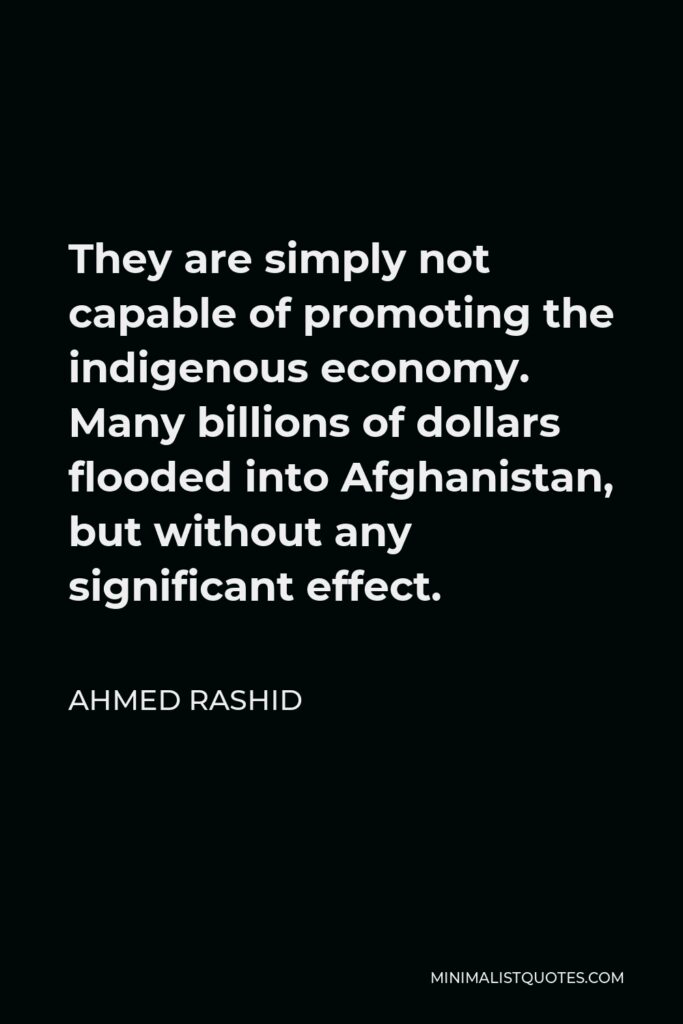

They are simply not capable of promoting the indigenous economy. Many billions of dollars flooded into Afghanistan, but without any significant effect.
AHMED RASHID -





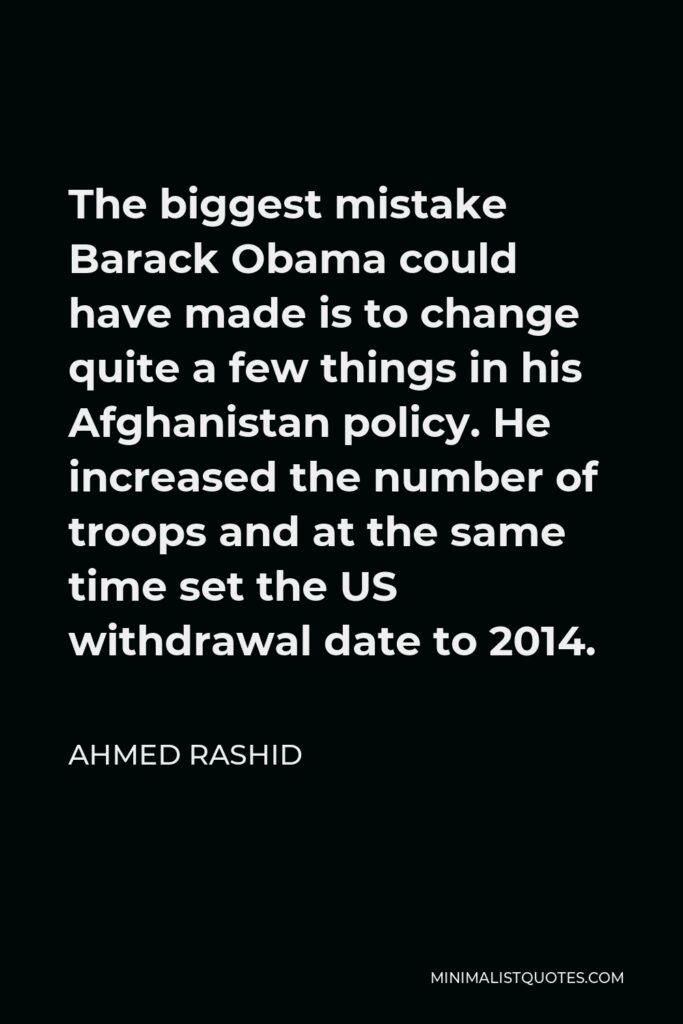

The biggest mistake Barack Obama could have made is to change quite a few things in his Afghanistan policy. He increased the number of troops and at the same time set the US withdrawal date to 2014.
AHMED RASHID -





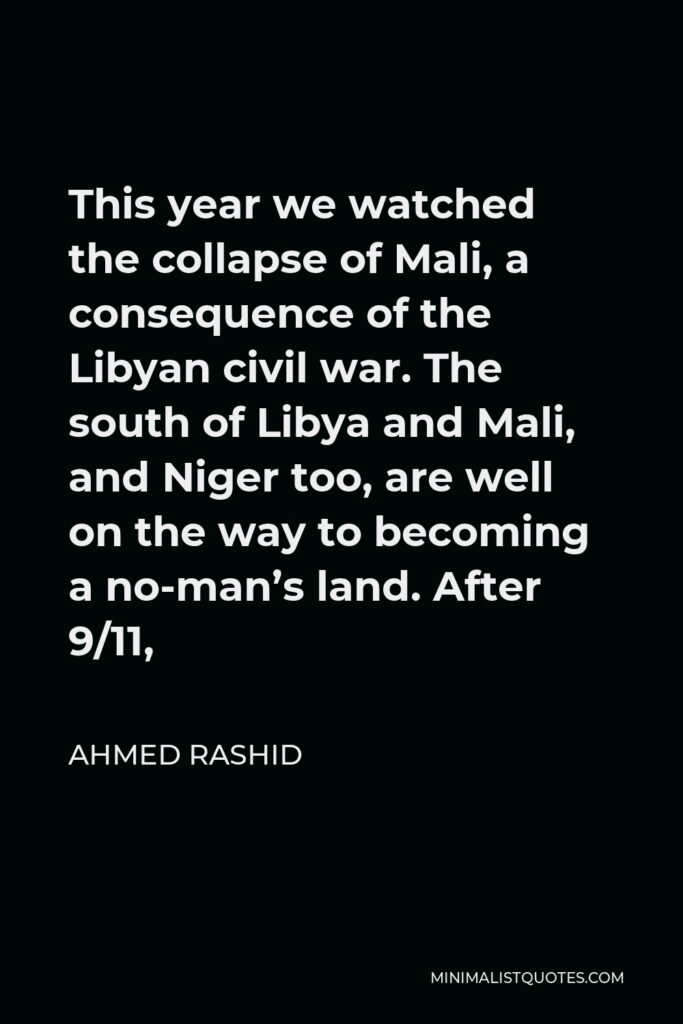

This year we watched the collapse of Mali, a consequence of the Libyan civil war. The south of Libya and Mali, and Niger too, are well on the way to becoming a no-man’s land. After 9/11,
AHMED RASHID -





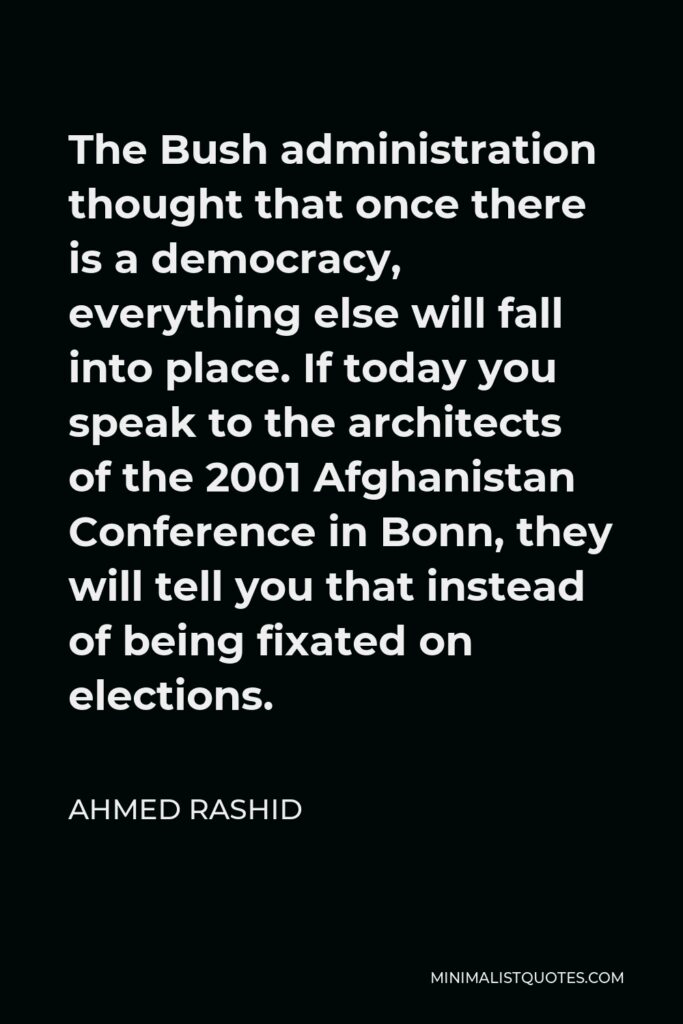

The Bush administration thought that once there is a democracy, everything else will fall into place. If today you speak to the architects of the 2001 Afghanistan Conference in Bonn, they will tell you that instead of being fixated on elections.
AHMED RASHID -





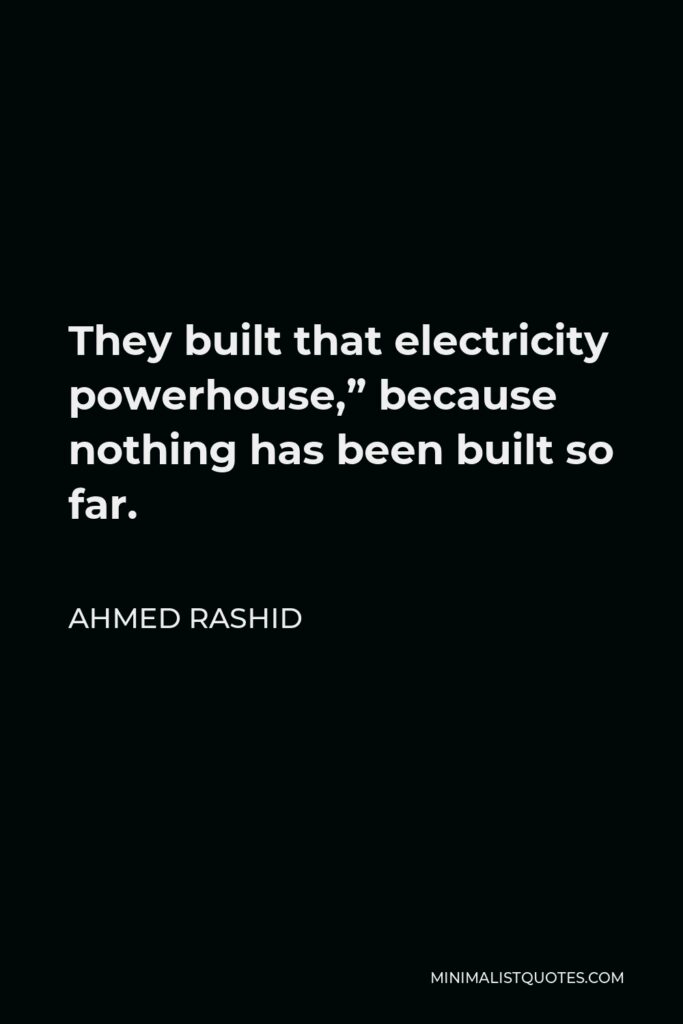

They built that electricity powerhouse,” because nothing has been built so far.
AHMED RASHID -





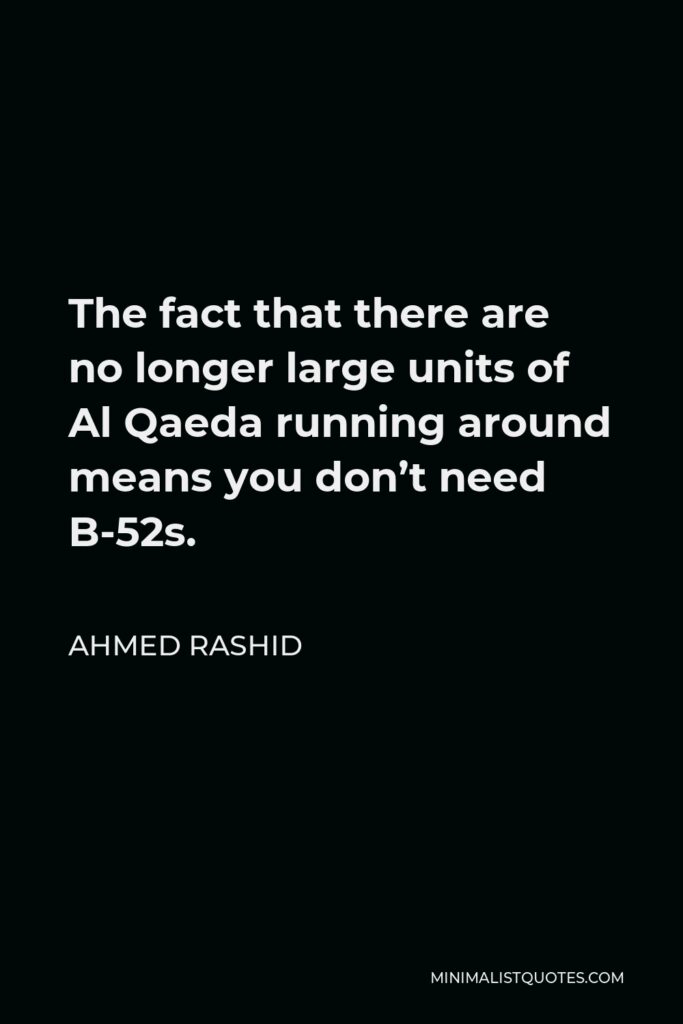

The fact that there are no longer large units of Al Qaeda running around means you don’t need B-52s.
AHMED RASHID -







We never had reports of Mullah Omar living luxuriously or making money in large quantities or anything like that.
AHMED RASHID -





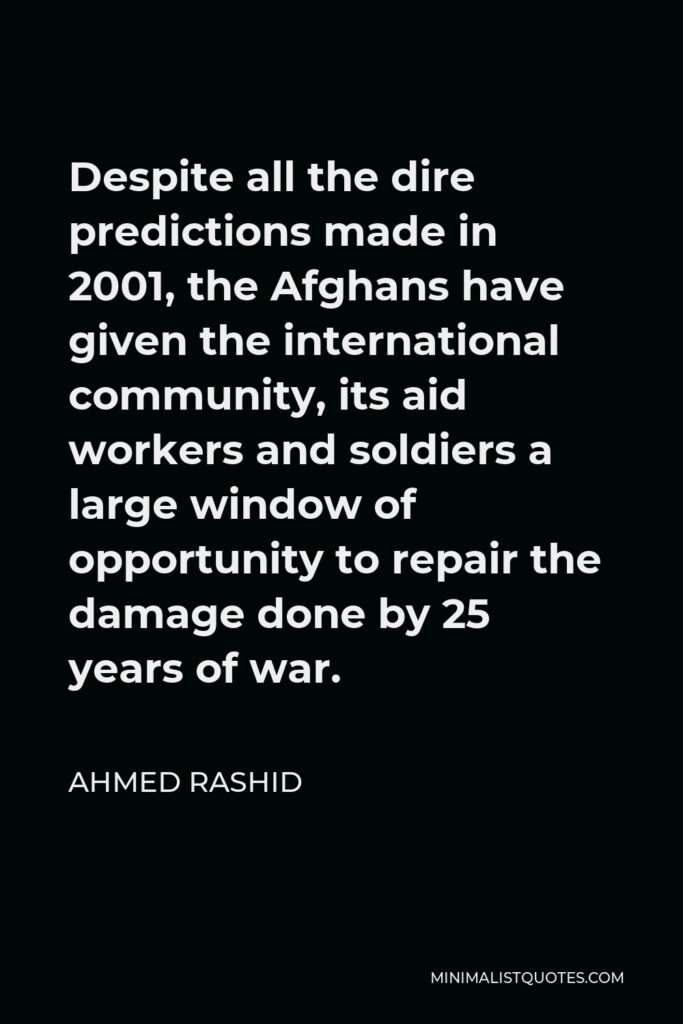

Despite all the dire predictions made in 2001, the Afghans have given the international community, its aid workers and soldiers a large window of opportunity to repair the damage done by 25 years of war.
AHMED RASHID -





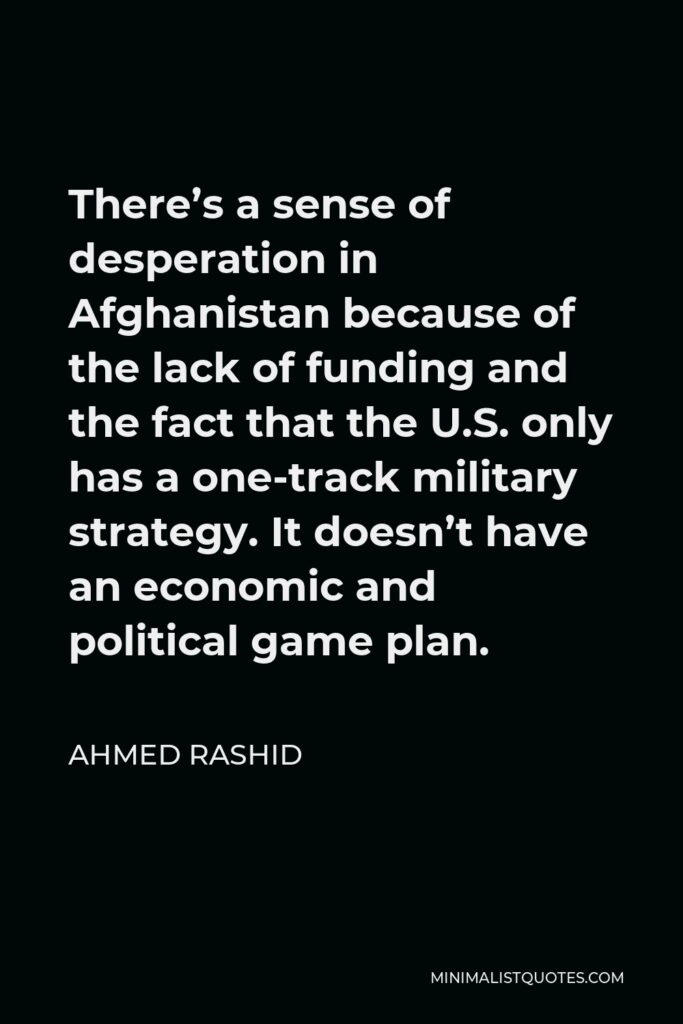

There’s a sense of desperation in Afghanistan because of the lack of funding and the fact that the U.S. only has a one-track military strategy. It doesn’t have an economic and political game plan.
AHMED RASHID -





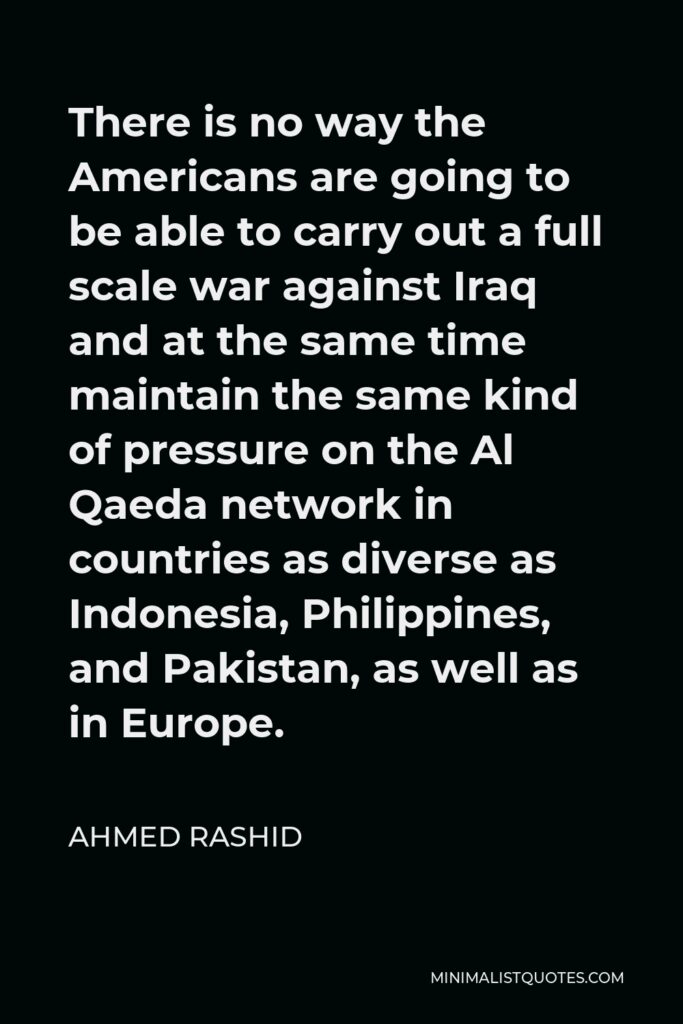

There is no way the Americans are going to be able to carry out a full scale war against Iraq and at the same time maintain the same kind of pressure on the Al Qaeda network in countries as diverse as Indonesia, Philippines, and Pakistan, as well as in Europe.
AHMED RASHID -





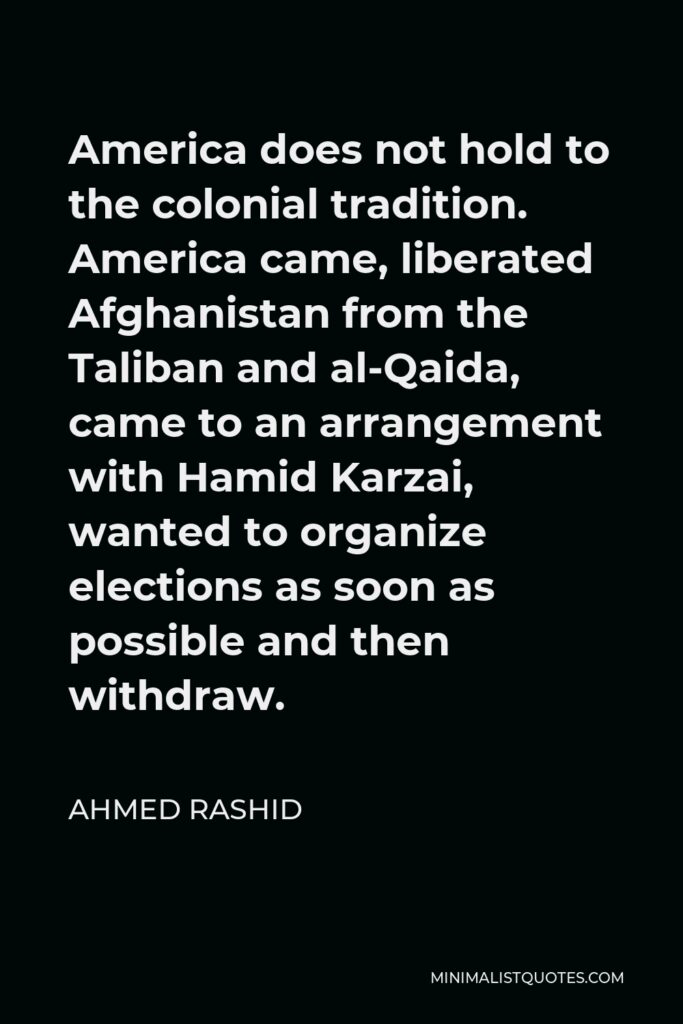

America does not hold to the colonial tradition. America came, liberated Afghanistan from the Taliban and al-Qaida, came to an arrangement with Hamid Karzai, wanted to organize elections as soon as possible and then withdraw.
AHMED RASHID -





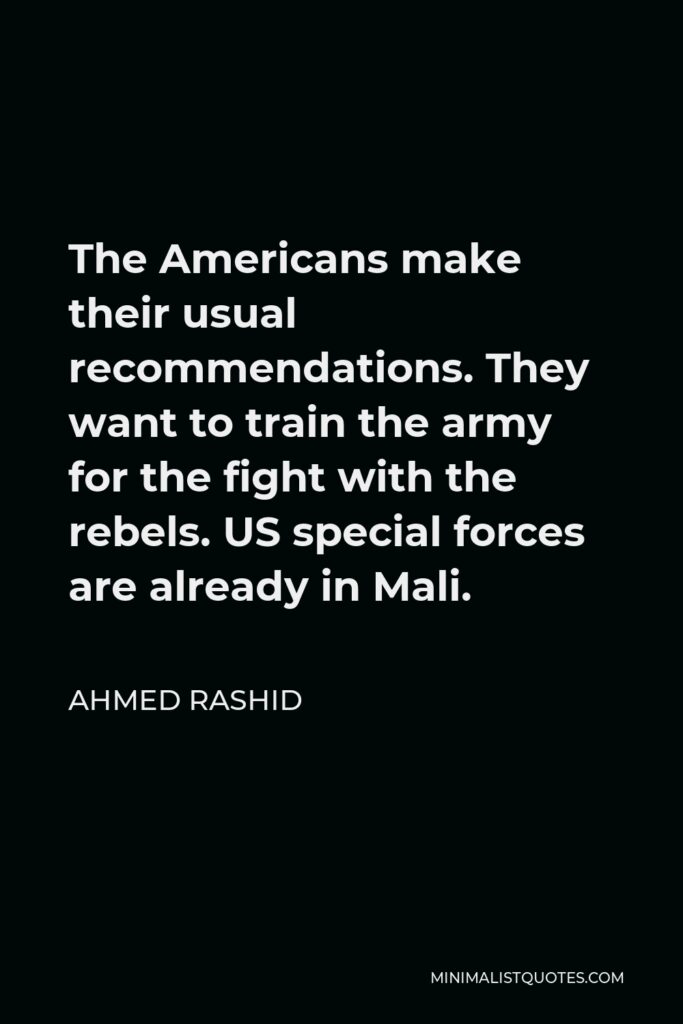

The Americans make their usual recommendations. They want to train the army for the fight with the rebels. US special forces are already in Mali.
AHMED RASHID -





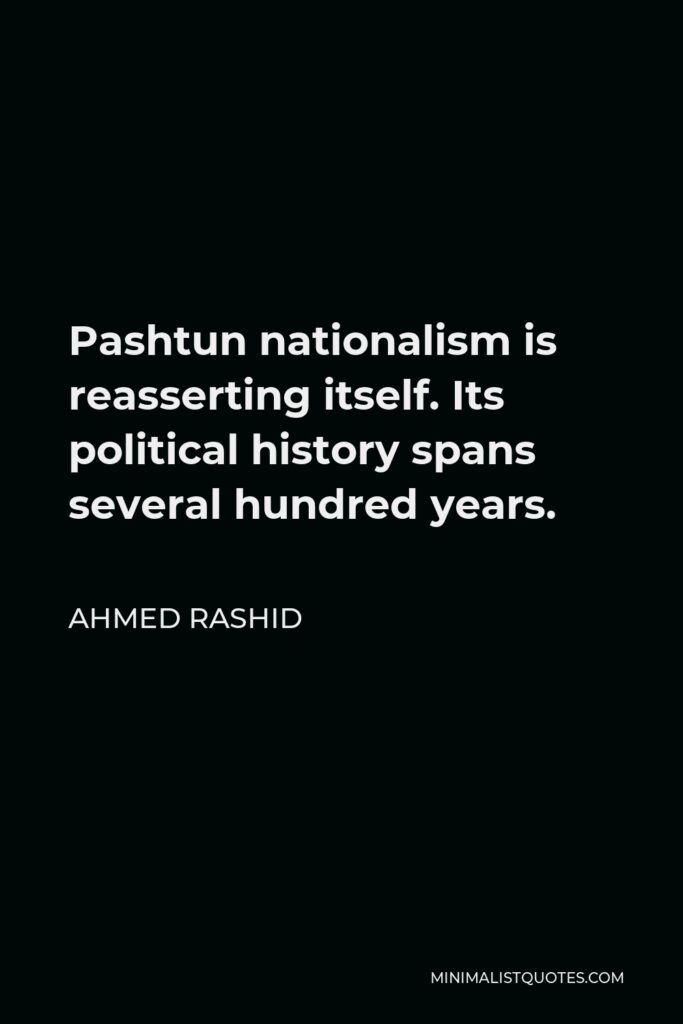

Pashtun nationalism is reasserting itself. Its political history spans several hundred years.
AHMED RASHID -





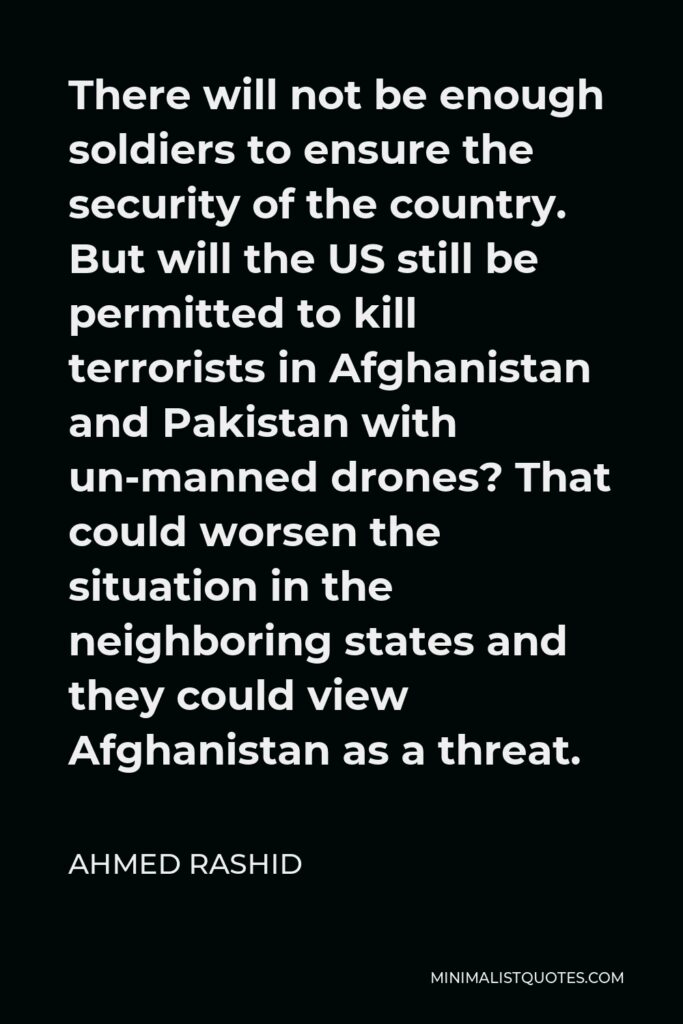

There will not be enough soldiers to ensure the security of the country. But will the US still be permitted to kill terrorists in Afghanistan and Pakistan with un-manned drones? That could worsen the situation in the neighboring states and they could view Afghanistan as a threat.
AHMED RASHID -





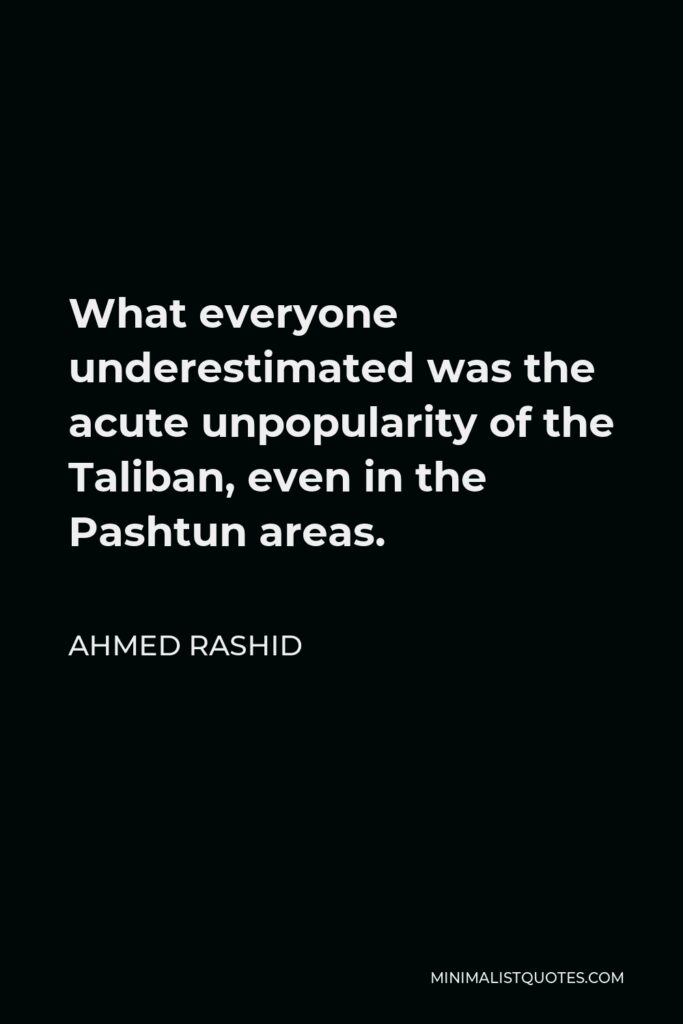

What everyone underestimated was the acute unpopularity of the Taliban, even in the Pashtun areas.
AHMED RASHID

